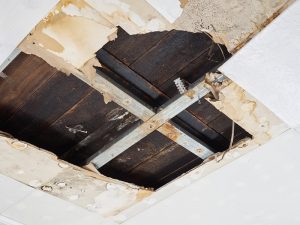What is a Loss Adjuster?
 Loss adjusters are usually employed by insurance companies and are sent out to assess any losses that their clients have incurred. A loss adjusters job is to report back to the insurer with recommendations as to what they consider the policyholder should be entitled to in order to settle their insurance claim.
Loss adjusters are usually employed by insurance companies and are sent out to assess any losses that their clients have incurred. A loss adjusters job is to report back to the insurer with recommendations as to what they consider the policyholder should be entitled to in order to settle their insurance claim.
Working For The Insurer or For You?
Many loss adjusters who work for the insurance company are not members of a higher authority such as The Chartered Institute of Loss Adjusters (CILA). As they are employed by or are working on behalf of your insurer, how would the policyholder be able to tell if any settlement offered would be fair or the correct amount?
Why Should You Do The Work That You Have Already Paid Your Insurer To Do?
The truth is you probably wouldn’t! Most insurance companies will even ask you to phone around a couple of builders to get a building repair estimate for your property. Don’t you pay for your insurance policy annually in the expectation that they will look after you in your time of need?
We all hope that this is the case but at the same time, you have to consider that your insurance company is a business and it would not exist if it wasn’t making money.
What are Loss Assessors?
A loss assessor is generally appointed by the policyholder instead of the insurance company and works in a similar way to a loss adjuster. The main difference is that they are employed to look after the interests of their client, the person who has informed their insurer that they have a claim.
Just like loss adjusters who work for the insurer, loss assessors who work for the public also do not need to be regulated by a higher authority.
So, what do you do when you are in the unfortunate position of having to submit a property claim? Do you put your trust in your insurance company in the hope that they will see you right?
Introducing Independent Loss Adjusters
 What if there was a group of loss adjusters who were members of the CILA.? A company that could manage your insurance claim from the point of contact right through to the settlement of your claim or even until your property is restored to its pre-loss condition.
What if there was a group of loss adjusters who were members of the CILA.? A company that could manage your insurance claim from the point of contact right through to the settlement of your claim or even until your property is restored to its pre-loss condition.
What if there was a company that would be willing to go the extra mile by appointing independent surveyors to assess the full extent of the damage? A company that would take over all negotiations with your insurer on your behalf.
Why Cope on Your Own When There Are People Who Can Help?
Would you like a company that can recommend experienced builders who repair properties that have suffered the type of loss that yours has regularly? Finally, would you like an independent loss-adjusting company that will work tirelessly on your behalf, covering every aspect of your claim to ensure that you receive your full entitlement?
Introducing Independent Loss Adjusters (ILA). They are a group of independent insurance claims negotiators who only work on behalf of the public. If you have a new or ongoing insurance claim that is taking a long time to settle, maybe you should consider taking advantage of the services that ILA offer.
Insurance Claims Management May Be More Complex Than You Think!
Before deciding whether or not to employ an insurance claims management company you would probably have conducted a bit of research as to whether it would be to your advantage or not. You most probably would have come across forums where people ask why not just manage the claim yourself.
The truth of the matter is that managing an insurance claim can be far more complex than you may think. Let’s just say you have had a fire and you go about obtaining a couple of builder’s quotes to submit to your insurer. Will your local builder be able to identify the full extent of the damage?
What about the water damage that has been caused by putting the fire out? There may be even more hidden damage as well as visible damage that may not be identifiable until the property is stripped out.
Will you be able to go back to your insurer to renegotiate because it is going to cost more to repair than my builder originally quoted? Don’t you think you may need a more experienced professional who will be able to identify the full cost of repairs?
In Many Cases, You May Have a Buildings Claim and a Contents Claim
 Then there is the loss of your contents to consider.… Read More
Then there is the loss of your contents to consider.… Read More

